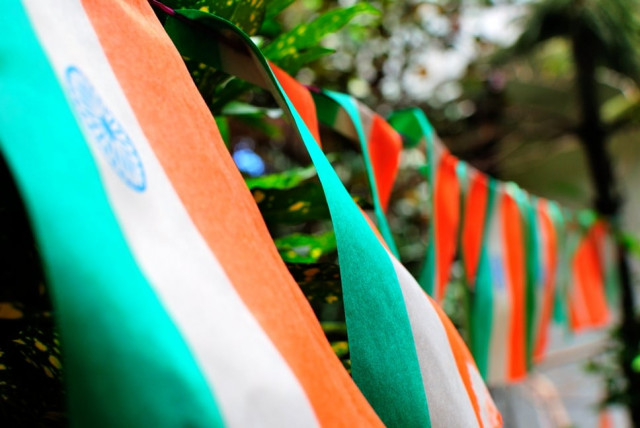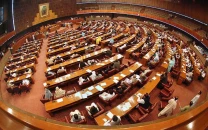Trade barriers: Govt sets terms for freer trade with Delhi
Asks India to identify some 100 items it intends to take off sensitive list.

PHOTO: FILE
Pakistan has asked India to first informally share the hundred items that it will exclude from the list of sensitive items protected against application of the South Asia Free Trade Area (Safta) agreement, before Islamabad takes any decision on normalising trade.
The demand was made during a recent visit of Minister of State for Commerce and Textile Khurram Dastgir to India, according to sources. Pakistan asked India to share the list of 100 items on a ‘non-paper’, a document that does not have legal binding.
The Safta agreement in 2004 had created a free trade area for Saarc countries to reduce customs duties of all traded goods to zero by 2016; the sensitive list is a list with every Saarc country which does not include tariff concessions.
Meanwhile, India has linked further reduction of items from the sensitive list with Pakistan’s decision to remove the negative list of 1,249 items that cannot be imported from India.

Highlighting the deep-rooted mistrust between both countries, sources in the commerce ministry seemed skeptical that New Delhi may omit only those items over which Islamabad enjoys competitive advantage.
India had reduced the number of items by 30% or 264 items in the sensitive list for SAARC’s non-least developed countries (NLDCs) such as Pakistan in August 2012. This effectively reduced India’s sensitive list for Pakistan from 878 to 614 tariff lines.
The process of trade normalisation with India hit snags in 2012 when Pakistan got irritated with India’s cold response on other disputed matters such as Siachen and Sir Creek. The Pakistani establishment however, wanted to pursue composite dialogue instead of treating trade issues separately.
Another major concern on Islamabad’s part is the non-tariff trade barriers which India applies to restrict import of goods from Pakistan.
India was not effectively implementing signed agreements to reduce non-tariff trade barriers due to which Pakistan’s exports to India had remained at just a few hundred million dollars despite the fact that India had granted Pakistan the status of the most favoured nation (MFN) in 1996.
Sources said Pakistan had also proposed January 7-8 or January 14-15 as fresh dates for commerce secretary level talks in New Delhi, but India has not yet responded to the proposal.
If India accepts Pakistan’s offer, the talks will coincide with Saarc’s business conclave meetings that are scheduled for January 17 and 18 in New Delhi.
The Minister of State for Commerce is expected to lead the Pakistan delegation.
During the last meeting of the National Assembly Standing Committee on Commerce, Khurram Dastgir had stated that the negative list would not be completely eliminated until concerns of Pakistan’s industry were addressed.
He had said that Pakistan first wanted to hold talks on non-discriminatory access of goods and that both countries were holding talks to enhance customs hours.
The issues of replacing loading trucks with containers to save time and for dealing with security had also come under discussion.
Published in The Express Tribune, January 2nd, 2014.



















COMMENTS
Comments are moderated and generally will be posted if they are on-topic and not abusive.
For more information, please see our Comments FAQ